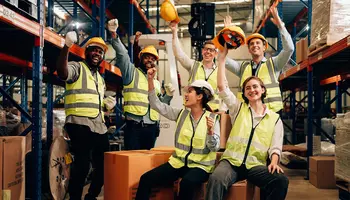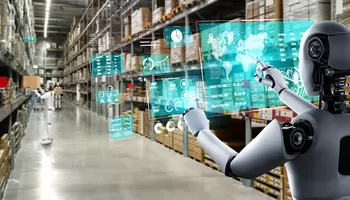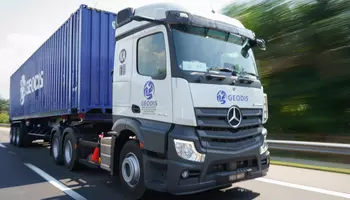
EcoVadis once again commends GEODIS for the quality of its CSR activity
EcoVadis, the ratings agency for social and environmental performance in global supply chains, has given GEODIS an overall grade of 70/100 for the quality of its Corporate Social Responsibility (CSR) activity.
This year, GEODIS was again commended by EcoVadis with the “Gold”* recognition level. GEODIS group has therefore continued its upward progression, compared to the previous year, with the overall grade of 70/100 (two points higher than in 2017). This excellent rating puts GEODIS among the top 300 companies out of a total of 30,000 assessed by EcoVadis. This means that EcoVadis recognizes GEODIS as one of the most advanced and committed businesses of any sector, in terms of environmental, social, ethical and responsible purchasing policies. Furthermore, the EcoVadis analysis shows that the average grade for evaluated businesses within the logistics sector to be 45/100. The overall score for GEODIS comes in at 25 points more than that.
This result, the highest since GEODIS’ first assessment in 2009, is the result of more than 10 years of working to carry out concrete and coherent actions concerning CSR. It reflects the commitment of the GEODIS Group to satisfy all of stakeholders, including society at large. In 2018, GEODIS has gone even further in its CSR commitment by announcing an overall goal to reduce its greenhouse gas emissions by 30% by 2030.
The EcoVadis evaluation focuses on four topics: social, environmental, business ethics and responsible purchasing. This year, as in 2017, GEODIS especially stood out on environmental issues, with an excellent score of 90/100.
As stated by Marie-Christine Lombard, Chief Executive Officer of GEODIS: “Environmental responsibility and sustainability: today, these two terms must be a part of the governance of every company. Beyond simply economic interests, it’s about taking a longer view and thinking of the company as an integral stakeholder in society, mindful of its impact, whose ultimate objective is also societal.”
(*) 2018 evaluation based on 2017 data.



















































 Go back
Go back






.jpg6d9d.jpg?itok=WKFXiTZ1)



.jpgfb98.jpg?itok=WWMYPZuC)


